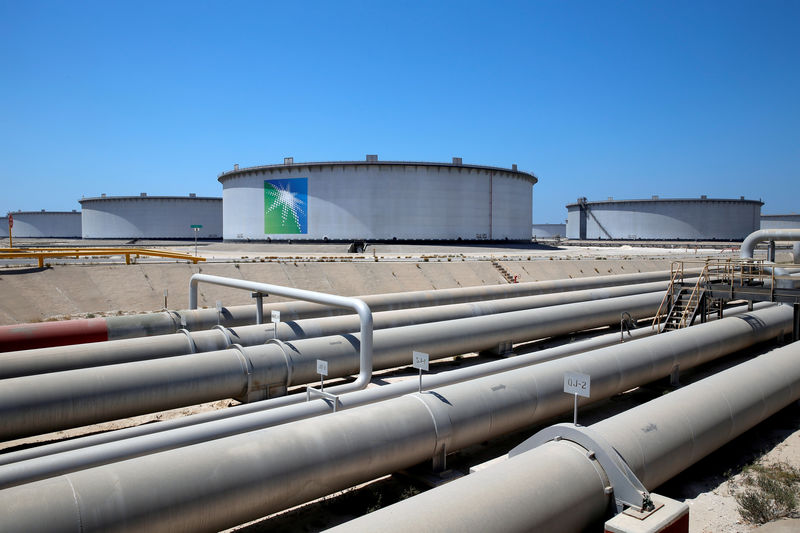By Rania El Gamal
DUBAI (Reuters) - Gulf OPEC producers can step in to meet any oil supply shortage following a U.S. decision to end waivers on buyers of Iranian crude, but will first wait to see whether there is actual demand, OPEC and industry sources said.
The United States has decided not to renew exemptions from sanctions against Iran granted last year to buyers of Iranian oil, taking a tougher line than expected.
Eight countries, including China and India, were granted waivers for six months, and several had expected those exemptions to be renewed.
A senior U.S. administration official said Trump was confident Saudi Arabia and the United Arab Emirates would fulfill their pledges to compensate for the shortfall in the oil market.
Gulf oil producers are committed to market stability and have the capacity to raise production, but any decision to boost output has to be a measured one depending on demand, the sources said.
"The question is how fast and by how much will OPEC raise output. This still needs to be done after consultations with other countries," one source said.
"It needs to be discussed and studied. There is an (OPEC) agreement that must be respected, we will not (raise output) immediately for sure."
Another OPEC source said any decision to raise output must depend on demand.
"There must be actual impact on the market and a real demand from customers," this source said, adding that any physical additional barrels by Gulf oil producers to compensate for a supply drop from Iran are unlikely to be seen until June.
Saudi Arabia's oil exports in May are not expected to be much higher than April, two sources said.
The sources said Saudi Arabia's May oil output will be higher than April, but still within its production target under the OPEC+ supply-cutting deal of 10.3 million bpd. The rise in Saudi May oil output is not related to Iran sanctions, the sources said.
The kingdom's exports in April will be below 7 million barrels per day, while production is around 9.8 million bpd, Saudi officials said.
Washington reimposed sanctions in November on Iran's oil exports after U.S. President Donald Trump pulled out of a 2015 nuclear accord between Iran and six world powers.
Saudi Energy Minister Khalid al-Falih said on Monday that his country, the world's top oil exporter, was monitoring oil market developments after the U.S. statement. He also said Riyadh would coordinate with other oil producers to ensure a balanced market and adequate supply.
A source familiar with Saudi thinking told Reuters on Monday that the country was willing to compensate for any potential loss of crude supply from Iran, but would assess the impact on the market before raising output.
The Organization of the Petroleum Exporting Countries, Russia and other producers, an alliance known as OPEC+, are reducing output by 1.2 million bpd from Jan. 1 for six months. They meet on June 25-26 to decide whether to extend the pact.
On May 19, a panel of energy ministers from major oil producers, known as the JMMC, is due to discuss the oil market and make recommendations ahead of the June policy meeting, the sources said.
